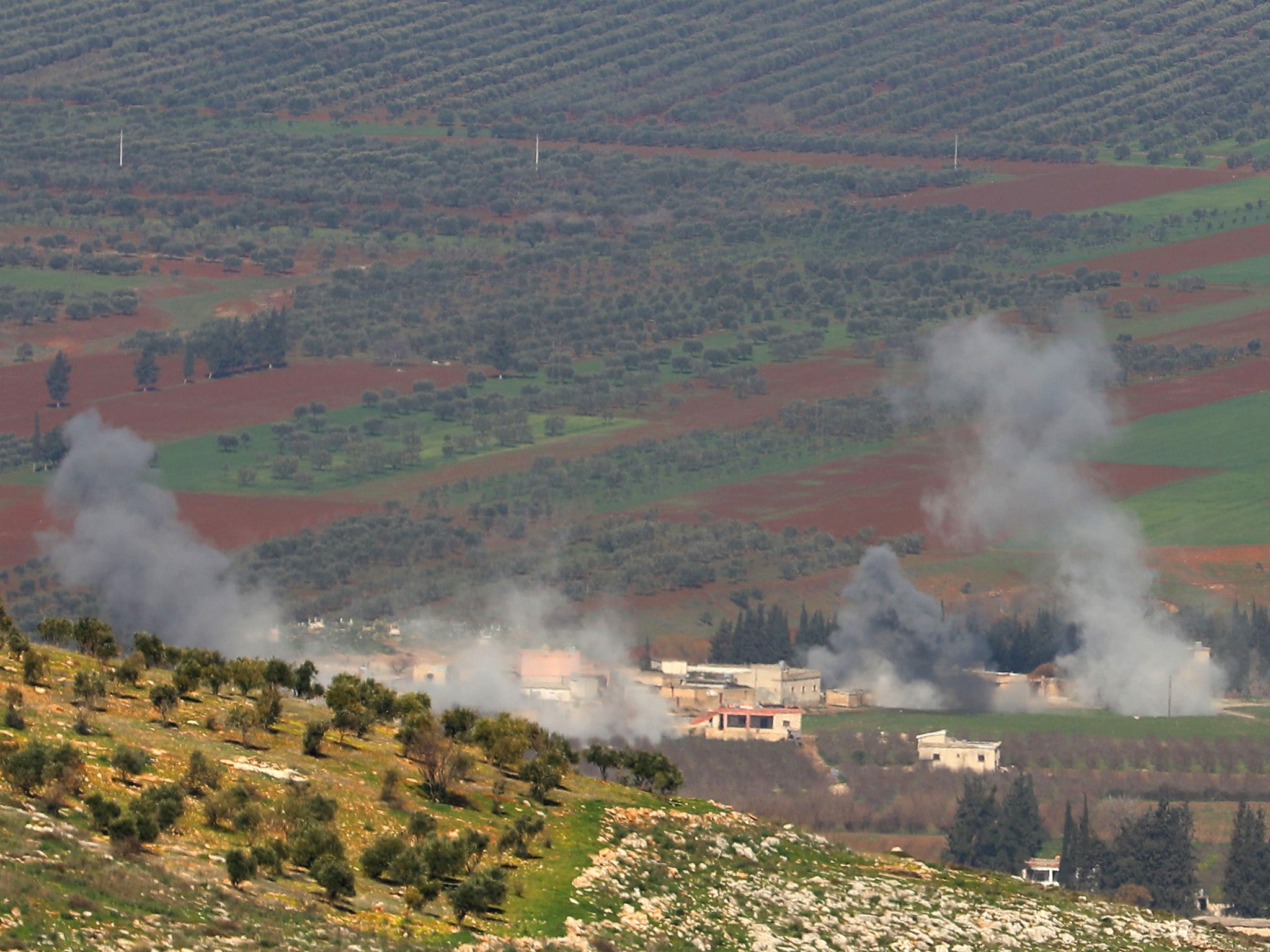Syrian civil war: regime forces come to Kurds' aid against Turkey in Afrin
Entry of Syrian government-allied Shia forces into new front in country's northwest raises spectre of wider escalation

Pro-Syrian government forces have entered the contested canton of Afrin to help Kurdish forces defend against a Turkish offensive - a further escalation in Syria’s already complex civil war.
Footage broadcast by Hezbollah and Syrian regime-allied outlets showed convoys of tanks carrying Syrian flags and soldiers brandishing weapons entering the northwestern part of the country from Aleppo on Tuesday. Syrian state media reported they had been targeted by Turkish shellfire.
The new forces are mostly believed to be made up of the Shia Iranian-backed Popular Mobilisation Units (PMU).

“The Syrian government has responded to the call of the duty and sent military units on this day... to deploy along the border and take part in defending the unity of Syria's territory and borders,” Nouri Mahmoud, a spokesperson for the Kurdish YPG militia, said in a statement.
Turkish President Recep Tayyip Erdogan launched the air and ground offensive Operation Olive Branch last month, opening a new front in Syria’s bloody conflict which has already killed dozens of civilians and fighters on both sides.
Turkey has been widely accused of not properly vetting the Sunni Syrian fighters it is using in the offensive. Both sides have accused the other of war crimes, targeting civilians and mutilating the bodies of fallen soldiers.
Turkey views the Kurdish YPG as an extension of its own separatist PKK, a group designated as a terrorist organisation by Ankara as well as the EU and US.
The YPG and broader Arab-Kurdish coalition Syrian Democratic Forces (SDF) have won widespread Western support over the past few years as the most effective ground force against Isis.
In January the US pledged continued support for the YPG and SDF to ensure the jihadi militants do not form a resurgent movement, a strategy which enraged Turkey and contributed to the decision to launch the new offensive on Afrin.
The entry of forces loyal to Syrian President Bashar al Assad into the new theatre raises the spectre of a wider escalation.

The deal was first reported on Sunday, when a Kurdish official said there was a agreement with Mr Assad's government for the army to enter Afrin and deploy along the border - but that the agreement did not extend to political relations between Damascus and the YPG.
The two sides have at times been in direct conflict and at others have formed realpolitik alliances during the seven-year-old conflict.
The move flies in the face of remarks from Mr Erdogan earlier on Tuesday, said Ankara had worked alongside the Syrian government’s ally Russia to prevent any deployment by pro-Syrian government forces.
On Monday, Turkey warned it was not afraid to confront government forces if they entered Afrin to help the YPG.
Despite international calls to halt the offensive, President Erdogan has remained bullish, repeatedly threatening that his forces could extend their offensive as far east as Manbij – which could bring them into direct conflict with the US-backed SDF coalition and stationed US troops.
News agencies contributed to this report
Join our commenting forum
Join thought-provoking conversations, follow other Independent readers and see their replies
Comments
Bookmark popover
Removed from bookmarks